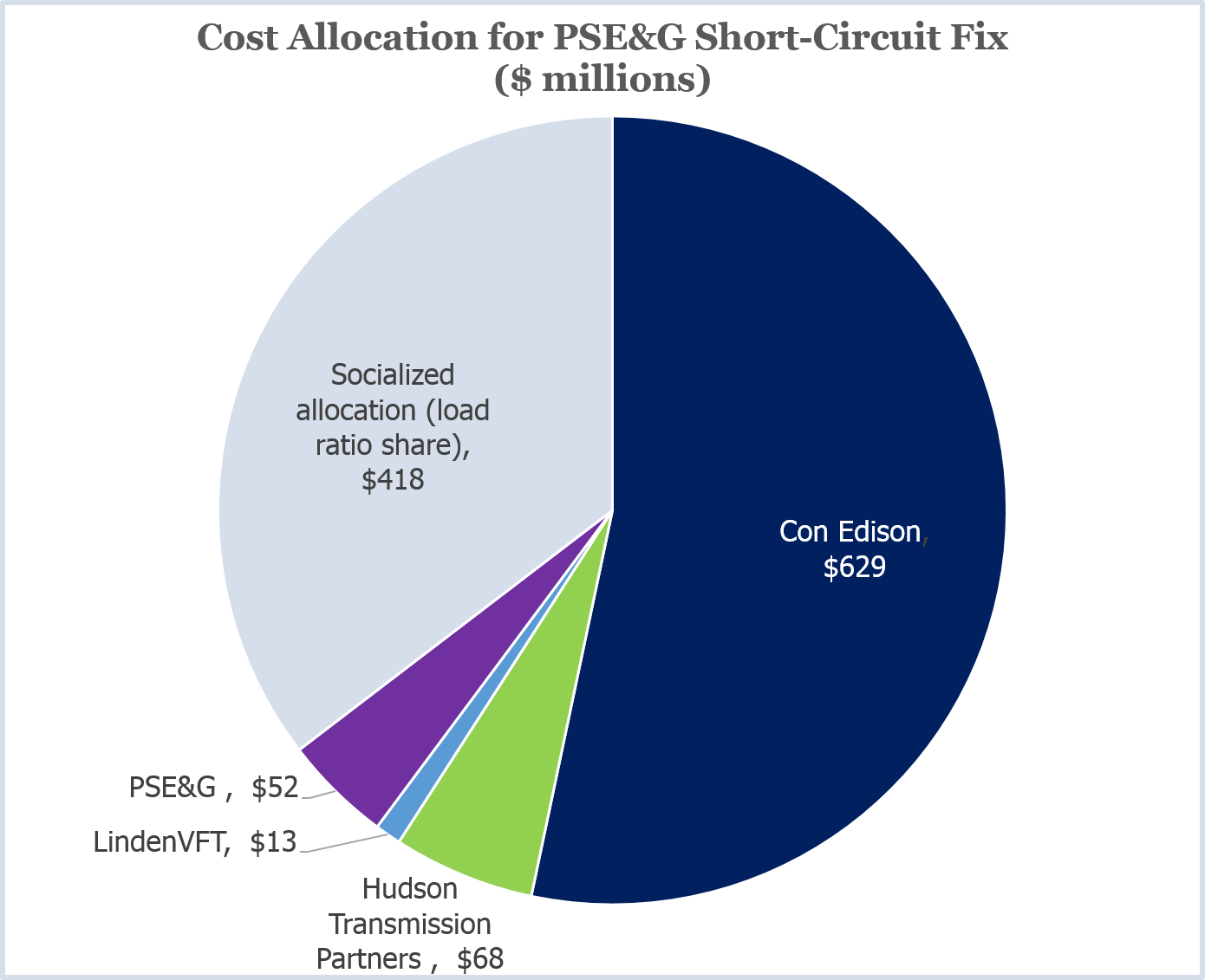By William Opalka
Consolidated Edison of New York has opened a new front in its attempt to persuade federal regulators that it’s been saddled with an unfair share of two transmission upgrades in northern New Jersey.
The company filed a complaint on Nov. 10 with the Federal Energy Regulatory Commission stating its opposition to a cost allocation formula that PJM has devised for the upgrades (EL15-18). Con Ed said it is being overcharged by about $650 million for the projects.
PJM assigned Con Ed $629 million of the costs of a $1.2 billion transmission upgrade to address a short-circuit problem in the Public Service Electric and Gas transmission zone outside New York City. PJM said Con Ed’s responsibility resulted from its use of the “Con Ed-PSEG wheel,” in which Public Service Enterprise Group, PSE&G’s parent company, takes 1,000 MW from Con Ed at the New York border and delivers it to Con Ed load in New York City. PSE&G was allocated $52 million of the cost.
Con Ed was also assigned $51 million of PSEG’s $100 million Sewaren storm-hardening project.
In April, FERC rejected Con Ed’s attempt to avoid paying for the short-circuit project but said it wanted more information on how PJM performed the distribution factor (DFAX) analysis that determined Con Ed’s share of the cost. (See FERC Rejects Con Ed Challenge on Tx Upgrade.)
Con Ed also said PJM’s Tariff requires a review of instances where PJM’s cost allocations will produce “objectively unreasonable” results.
The company said the new complaint will provide a more holistic consideration of the cost allocation than the rate filing that prompted FERC’s earlier order.
“FERC has recognized that parties have a right to challenge previously approved cost allocation methodologies,” Con Ed spokesman Bob McGee said. “As such, Con Edison exercised its rights under the Federal Power Act and challenged the cost allocations themselves, the decisions and actions taken by PJM in producing the cost allocations and the discrete elements of PJM’s Tariff that caused these unjust, unreasonable, unduly discriminatory and preferential results.”



